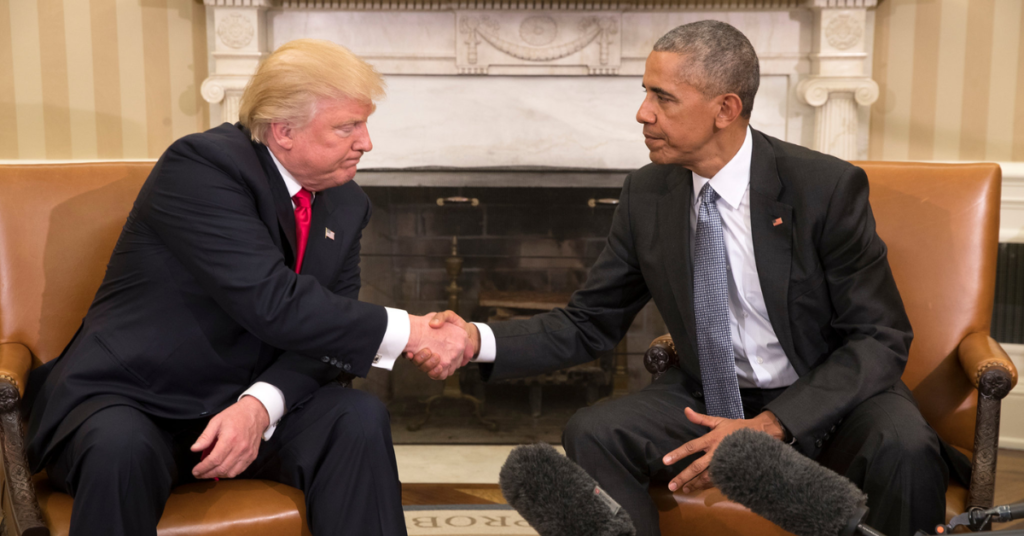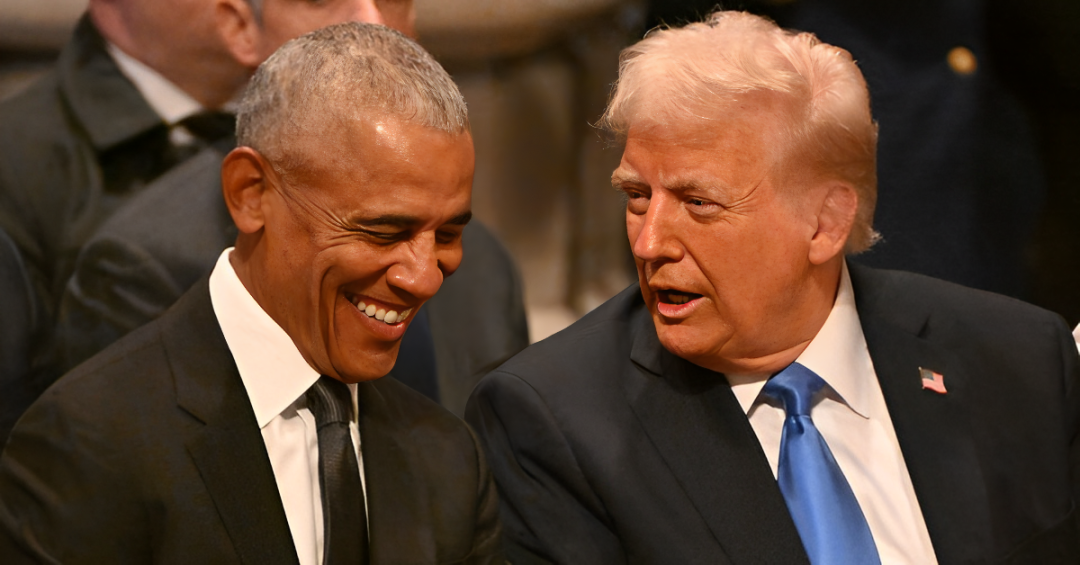A new poll by Overton Insights has revealed an intriguing scenario for the 2028 U.S. presidential race. According to the survey, if the 22nd Amendment were amended to allow presidents to serve three terms, former President Barack Obama would defeat Donald Trump in a hypothetical matchup.
The poll surveyed 1,103 registered voters between March 24 and 28, and it found that Obama would win by 53 percent to 47 percent in this highly unlikely scenario. The margin of error for the survey is plus or minus 2.7 percentage points.
At the heart of this discussion is the 22nd Amendment to the U.S. Constitution, which currently limits any individual to two terms as president. This amendment was ratified in 1951 after Franklin D. Roosevelt served four terms, a situation that led to concerns about the concentration of too much power in one person’s hands.
The idea of allowing presidents to serve three terms has been a topic of debate in recent years, especially with the renewed interest in the possibility of former leaders like Trump or Obama running again.
The poll shows that despite Trump’s popularity among many Republicans, Obama, who served two terms as president from 2009 to 2017, would still have a strong edge if he faced off against Trump in 2028. This outcome comes at a time when Trump is reportedly considering his chances for a third term, possibly even seeking legal avenues to achieve it. Trump has been vocal about his interest in running again, even after leaving office in 2021. In fact, Trump has stated in interviews that he would “love” the opportunity to face Obama in a 2028 race.
The 22nd Amendment restricts presidents to serving only two terms, but the amendment can be changed if there is enough political support. This change would require a two-thirds majority in both the House of Representatives and the Senate, followed by ratification by at least 38 out of the 50 U.S. states. Constitutional amendments are rare in the United States.
Since the Constitution was first written in 1787, only 27 amendments have been ratified, and the process to make changes is intentionally difficult. The most recent amendment, ratified in 1992, prevents members of Congress from giving themselves pay raises during a current session.

Despite the challenges involved in amending the 22nd Amendment, some Republican lawmakers are pushing for such a change. In January, Republican Representative Andy Ogles of Tennessee introduced a resolution in the House calling for the 22nd Amendment to be altered to allow presidents to serve three terms. Ogles’ proposal would not allow previous two-term presidents like Obama or George W. Bush to run for a third term, but it would pave the way for someone like Trump to pursue a third term in office.
Trump, for his part, has expressed interest in exploring the possibility of a third term, though his approach to it would be unconventional. During an interview in March, Trump suggested that there were “methods” by which he could achieve a third term, though he did not go into detail about what those methods might be.
He suggested that one such method could involve Vice President JD Vance leading the Republican ticket in 2028, with Trump running as his vice president. If Vance were to win and take office in 2029, he could then resign, allowing Trump to take over as president. However, the 12th Amendment to the Constitution states that anyone who is “constitutionally ineligible” to serve as president cannot serve as vice president. This would make the strategy highly questionable from a legal standpoint.
Despite Trump’s interest in running again, many experts are skeptical that he would be able to challenge the term limits set by the 22nd Amendment successfully. Legal scholars and political analysts have pointed out that any attempt to alter the amendment would face significant obstacles. Even if the amendment were successfully changed to allow a third term, the U.S. legal system would likely face a long and intense battle over the constitutionality of such a move.
Philip Klinkner, a professor of government at Hamilton College, has argued that if Trump somehow managed to stay in office beyond his second term, it would effectively signal the end of American democracy as we know it. Klinkner warned that such an event would indicate that no legal practices or institutions were strong enough to stop Trump from consolidating power. He compared this to the behavior of authoritarian leaders in countries where term limits have been removed to allow for indefinite rule.
Neama Rahmani, a former federal prosecutor, also weighed in on the issue, suggesting that Trump would not have the votes in Congress or in the states to repeal the 22nd Amendment. Rahmani predicted that even a conservative-leaning Supreme Court would uphold the constitutional ban on a third term, adding that failing to do so would lead to a “constitutional crisis” in the country.
Despite the legal hurdles, Trump remains unbowed in his belief that there might be a way for him to return to office. However, as of now, the proposed resolution by Rep. Ogles to amend the 22nd Amendment has not gained significant traction in Congress, and it is unlikely to be brought to a vote anytime soon. Furthermore, the chances of Trump actually securing a third term in 2028 remain slim, given the legal and political barriers that stand in his way.
In the meantime, the possibility of a rematch between Obama and Trump in 2028 continues to capture the imagination of many voters. While the poll results show that Obama would have the upper hand, it remains to be seen whether either candidate will pursue a third term or if the 22nd Amendment will remain unchanged.
For now, the idea of a 2028 presidential race between two former presidents remains a hypothetical scenario, but one that could spark important conversations about the future of U.S. democracy and the role of term limits in preserving the integrity of the office of the president.
Disclaimer: This article has been meticulously fact-checked by our team to ensure accuracy and uphold transparency. We strive to deliver trustworthy and dependable content to our readers.








